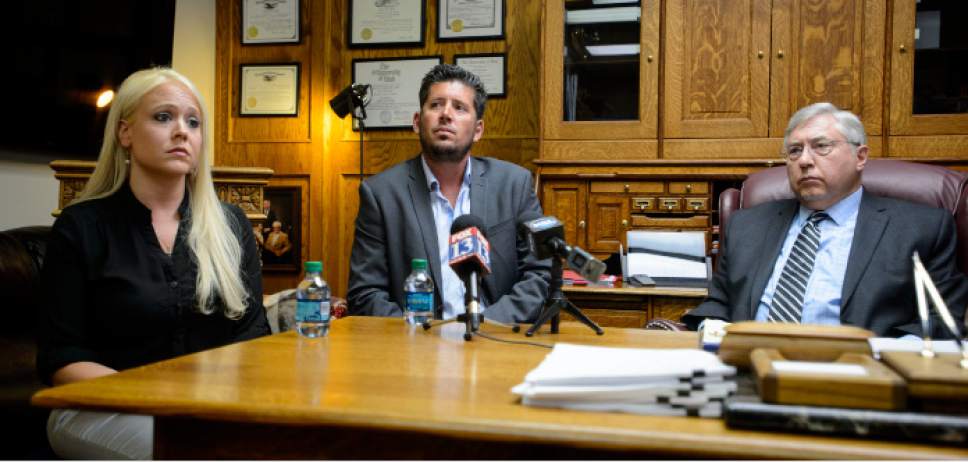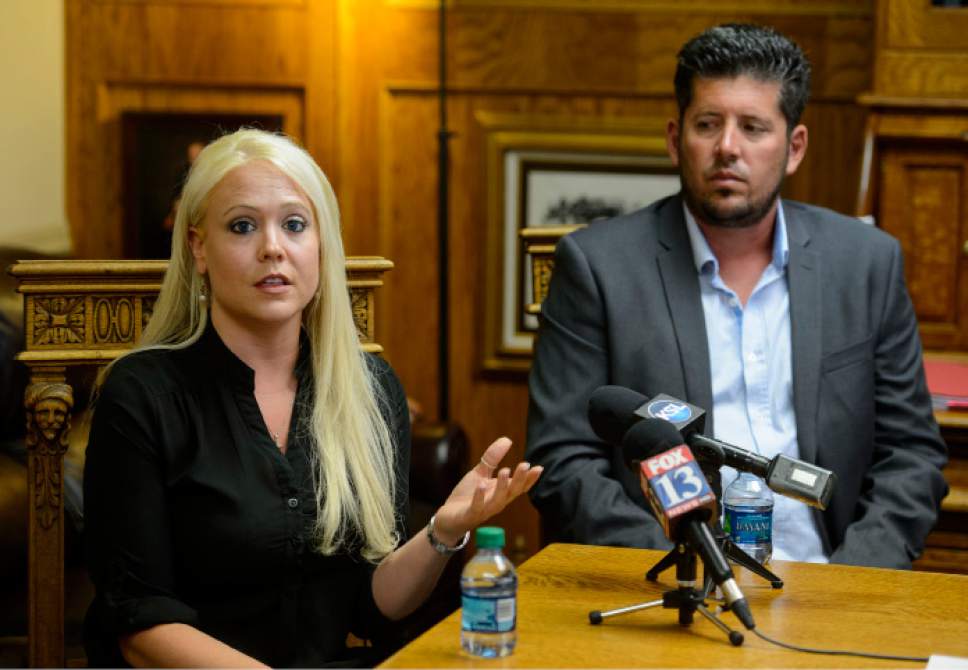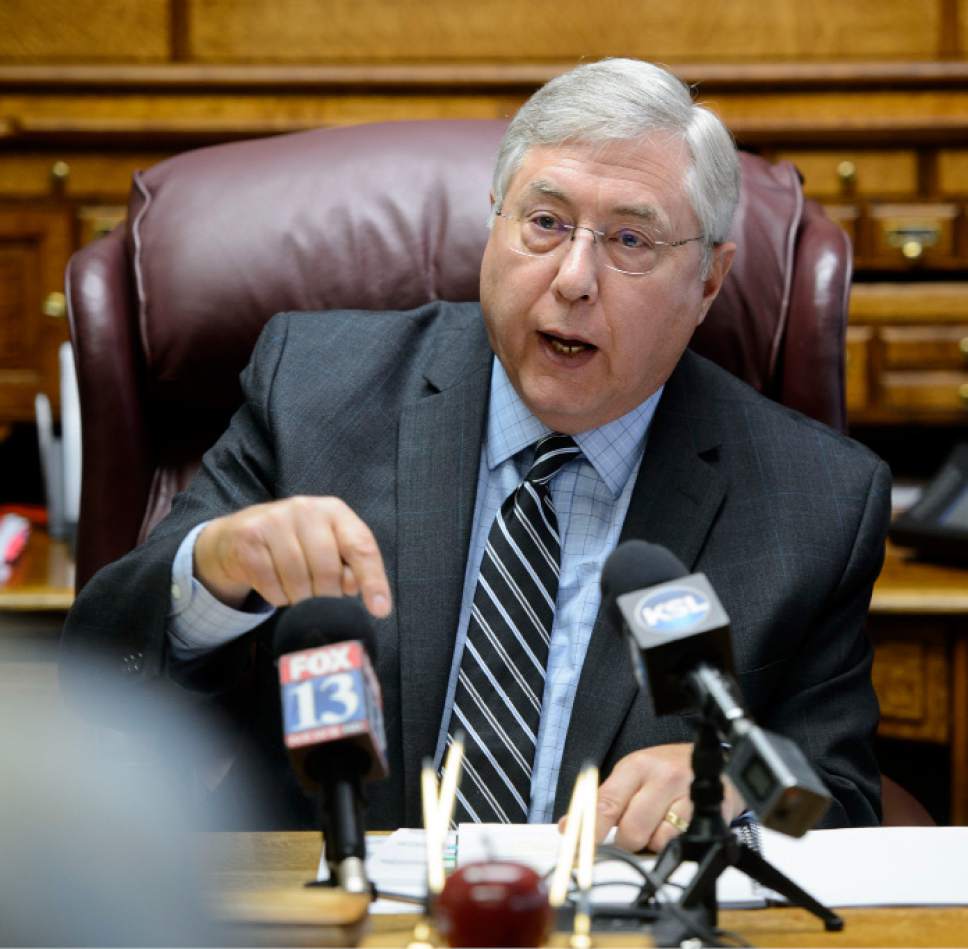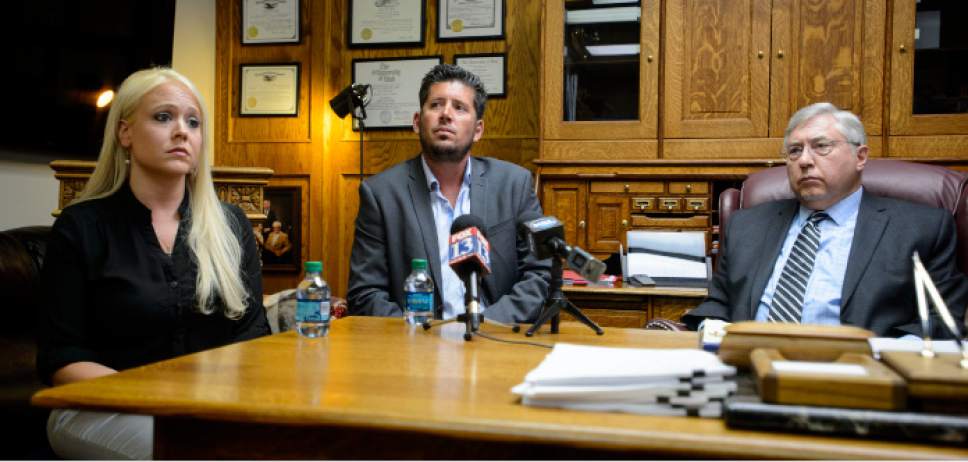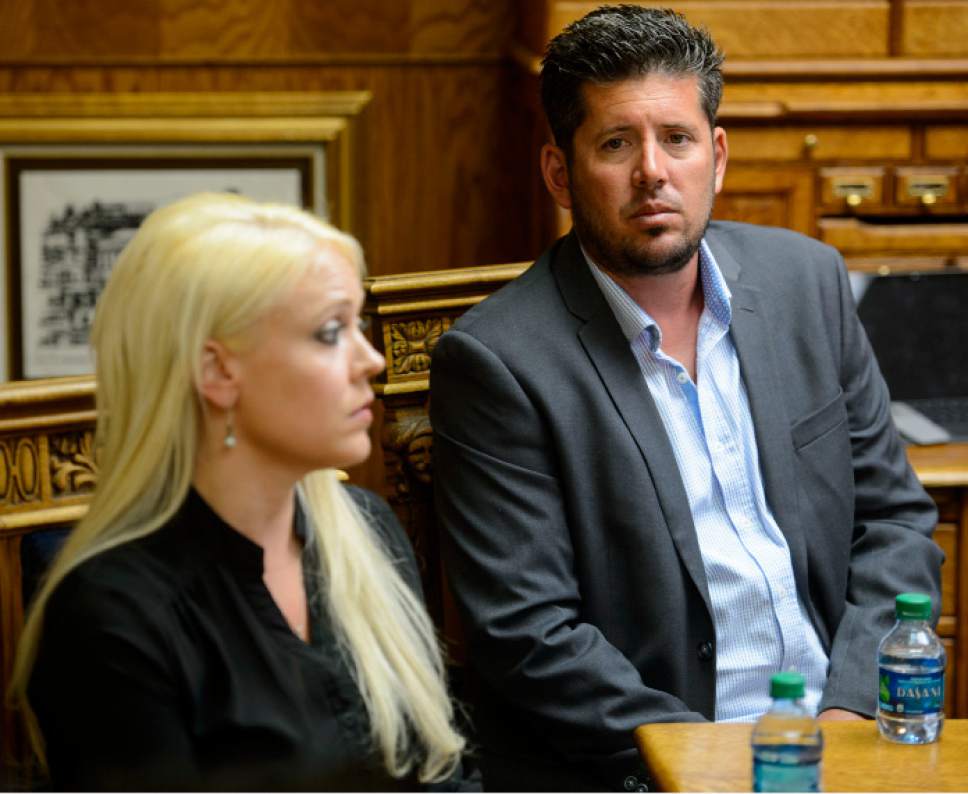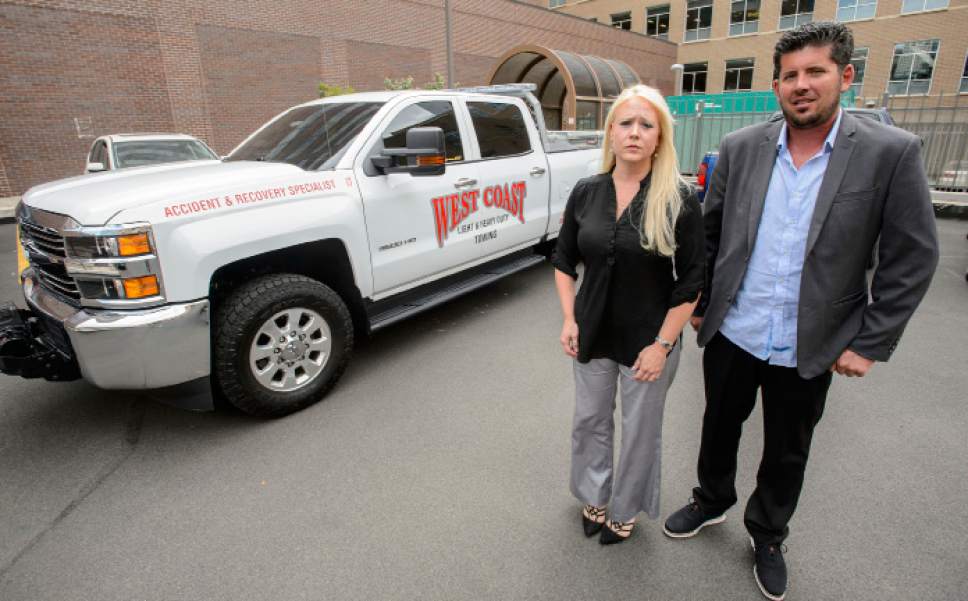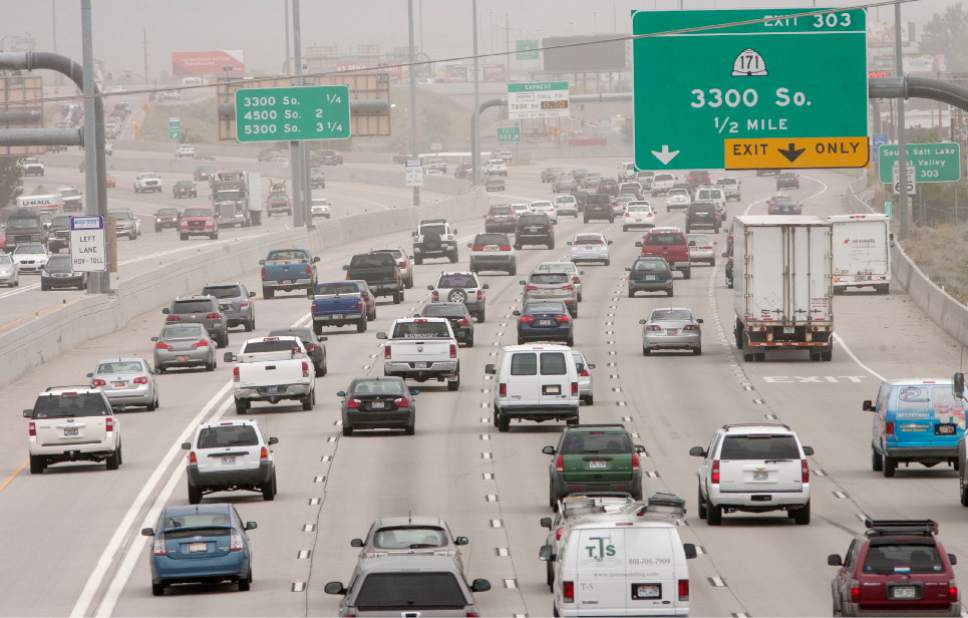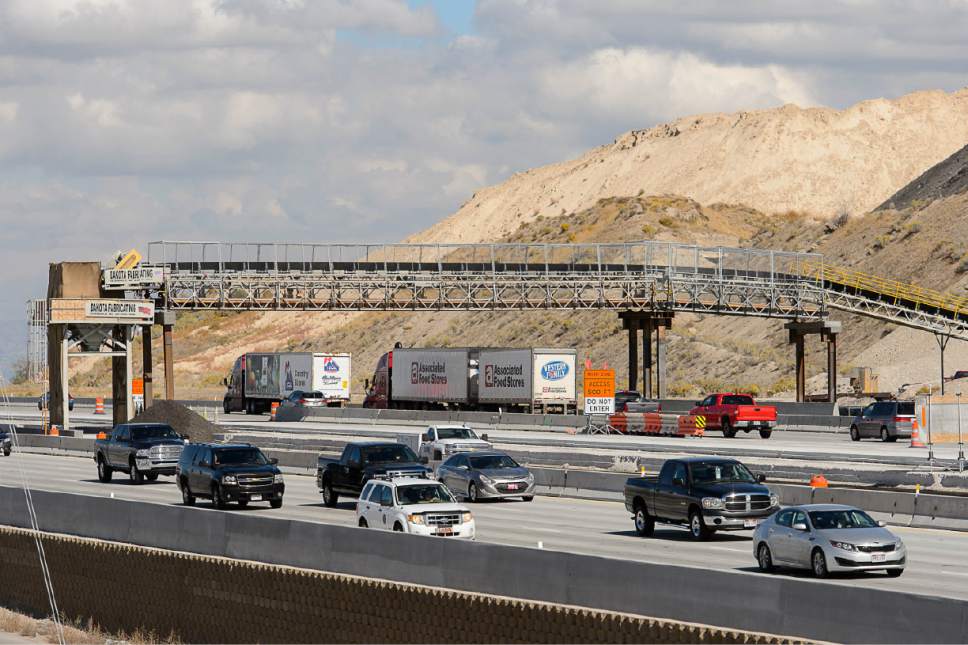This is an archived article that was published on sltrib.com in 2017, and information in the article may be outdated. It is provided only for personal research purposes and may not be reprinted.
A lawsuit alleges that two state agencies gave preferential treatment to a tow truck company, and that a Utah Highway Patrol trooper sexually harassed a woman who complained that her employer, another tow truck company, was being slighted.
West Coast Towing, based in Lehi, planned to file the lawsuit Monday in state court in Salt Lake City.
The complaint says the company has lost "at least $630,000" in revenue because UHP has been bypassing what is called the Heavy Duty Towing Rotation in Utah County.
West Coast Towing is one of three Utah County towing companies qualified to be dispatched to heavy duty jobs — typically recovering broke down or overturned tractor-trailers or other large vehicles. UHP is supposed to give each of the three companies turns and run the program equitably, the lawsuit says.
But West Coast Towing's lawsuit claims that since October, UHP has not been following the rotation. Drivers for Stauffer's Towing and Recovery have gotten a disproportionately high number of jobs because they have been allowed to show up at wrecks on their own volition when they hear police scanner traffic describing such a crash, the lawsuit alleges.
Cleaning up a tractor-trailer crash can be big business with the fees for towing and recovery ranging from $20,000 to $100,000, West Coast Towing owner Rob Face said Monday.
Face said he suspects that troopers are receiving kickbacks to divert business to Stauffer's.
"There are definitely some paid-to-play troopers out there," Face said at a press conference at his attorneys' office. "Guaranteed."
"We don't actually know any of that at this point," Face's lawyer, Bob Sykes, interjected immediately. "So our official position is, this is being handled improperly."
Marissa Villasenor, a spokeswoman for the Utah Department of Public Safety, which oversees UHP, on Monday afternoon provided statistics showing that, since the start of 2017, West Coast Towing received the same number of heavy tow jobs as Stauffer's — 21 each. A third company, Larry's Towing, received 23.
Villasenor, in an email, also said UHP received the complaints about the tow job allocations and sexual harassment on June 22 and are investigating both.
"We are currently doing an in depth review of the specific complaints made by West Coast Towing," she wrote.
UDOT spokesman John Gleason said in an email that the agency was not aware of any complaints from West Coast Towing.
Kurtis Stauffer, who said he co-owns Stauffer's towing with his wife, said he had not heard of any complaints until Monday. He said his company goes on tow jobs when called. He denied allegations in the lawsuit saying the company listens to police scanners and "poaches" jobs.
"I don't own a scanner and I don't own a scanner in any one of my offices," Stauffer said.
Neither Stauffer's nor Larry's are parties in the lawsuit.
Face said he has tried to complain to UHP. At one point, Robbins acknowledged there was a problem with the rotation, Face said, but no changes were made.
When Face got a meeting with the UHP lieutenant who was Robbins' superior, Face said, the lieutenant said Robbins' was lying and would need to take a lie detector test.
While the heavy towing rotation is operated by UHP, the lawsuit also makes accusations against a Utah Department of Transportation employee. The lawsuit says Rob Woolsey, who works in incident management for UDOT, will arrive at crashes, bypass the rotation, and arrange for Stauffer's to get the job.
Sykes contends that West Coast Towing isn't the only company to have complained. He produced a letter from the third company, Larry's, complaining to UHP that Stauffer's had been dispatched to 14 wrecks in nine months and Larry's had been dispatched to none.
Larry's did not return a call seeking comment.
The lawsuit also claims that Robbins sexually harassed a West Coast Towing employee named Heather Leyva "with improper, sexually suggestive comments, text messages, telephone calls, stalking and other unwanted personal contact."
Robbins used a UHP cruiser to pull over Leyva, the suit says, "to engage in petty, flirtatious conduct on the side of the road."
Leyva complained about favorable treatment for Stauffer's, the lawsuit says, and Robbins responded by saying: "'Don't do anything to make me dislike you.'"
Leyva and Sykes on Monday showed reporters copies of text messages they said were between Leyva and Robbins. In one, Robbins suggests the two get a drink sometime.
Leyva on Monday said she felt she had to go along with Robbins' "shenanigans" in order to protect her employer.
Twitter: @natecarlisle


